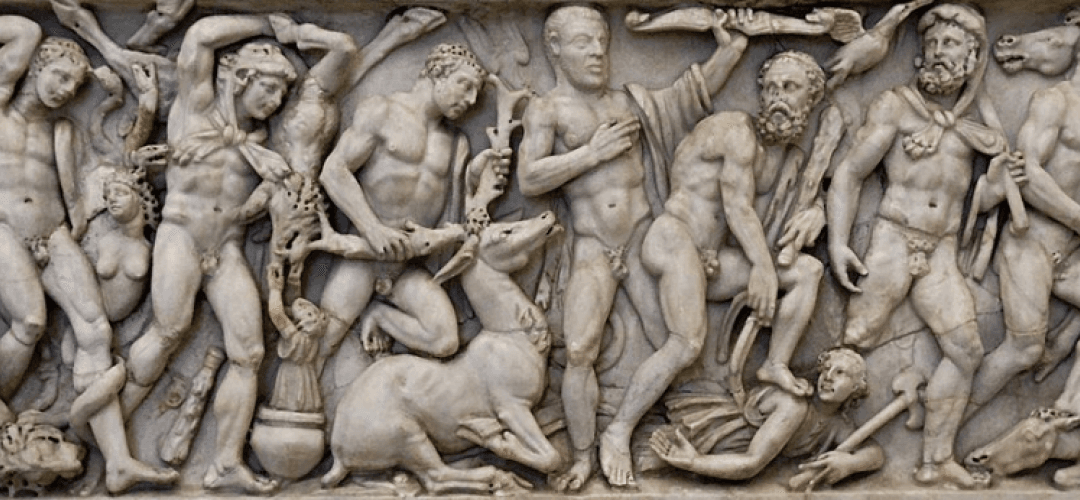By Paul Culp, MA (Oxon.), CFT, GCDF, CCSP
Hercules apparently wasn’t college material. If he had been, admissions officers and scholarship sources might have found his Twelve Labors impressive as a measure of his community service—up to a point. They probably would consider several of the labors unrelated to the common good. They might object to his having been paid for cleaning the Augean Stables, which in any case didn’t help anybody but Augeas. (Some of the environmental ramifications might also be regarded as disturbing.) And then there’s the sheer number of tasks. Maybe the boy was padding his resume…
Make no mistake, community service is important to the quest for admission and scholarships, but as with all other aspects of the process, being strategic is essential. We hope you engage in some form of community service out of the goodness of your heart, but whether it’s that way or solely a matter of shoring up your image with the admission and financial aid decision-makers, you need to manage and present your community service activities advantageously.
Why does it matter?
According to Forbes, a 2018 survey of 264 admissions officers by IESD for x2VOL, a tracking and reporting platform for community service hours among students in public and private schools, found that 58 percent of respondents say community service has a positive impact on an applicant’s chances. Overall, 53 percent said community service was crucial as a tie-breaker in the case of students who are equal in other respects, such as GPA, test scores, and difficulty of courses taken. Among respondents from private colleges, 61 percent cited community service as a significant tie-breaker.
The leading reason for an emphasis on community service was that it indicates the likelihood of a student being “active in student social life outside the classroom.” Next on the list was community service as an indicator that the student is “likely to contribute to the school’s mission,” followed by community service signifying that the student “shares the school’s values.”
These are vital points to consider in choosing community service activities. How do those activities align with the priorities of particular institutions on the student’s list of desirable destinations? Values and mission top the list among survey respondents from private colleges, and applicants should bear in mind the probability of being asked to write admissions essays with bearing on these topics. Community service activities concerning which the applicant can be articulate are essential. Why was the activity important, what was your impact on it, and how did the experience affect you?
Though the respondents surprise us somewhat with their priorities, The Coaching Educator has found that colleges and scholarship sources continue to value community service for the reasons most students, teachers, parents, and counselors would expect: Community service is a measure of community engagement, concern for others, capacity for teamwork, and time-management skill.

We have to hand it to Forbes. They’ve allowed for the possibility that people who can’t read the sign can nonetheless read a caption. And so precise about the date! Those people at Duke can move their signs every day if they like, but they’ll have to get up pretty early in the morning to fool Forbes!
How much and what kind?
Some school counselors and college/career coaches argue that anything beyond 200 hours is overkill. The Coaching Educator disagrees with this assertion. We have found that the 500-hour range is an important milestone for scholarship applicants, and we have difficulty imagining anybody being thought to have too many hours of community service. However, a cautionary word is in order regarding the distribution of energies:
In our own article, Ten Common Mistakes You Must Avoid in Applying for College (August 31, 2018), we warned against a scatter-gun approach to extracurricular activities, and the message holds true for community service:
“Doing a few things well and standing out at one or two can sometimes help you more than watering down your resume with so many activities that each of them seems insignificant.”
According to PrepScholar, 70 percent of admissions officers would prefer to see a long-term commitment to an unglamorous local cause than a superficially impressive venture such as a brief trip abroad. (Circumstances vary. Some of our clients have done some very impressive volunteer work during summer trips.) Sixty percent prefer to see commitment to one particular cause over the entirety of the applicant’s high school career.
We recommend going deep. Concentrate on one or two things. Get to know the other people involved. Learn the organization and its processes thoroughly. You will be a stronger contributor that way, derive more personal benefit, and present yourself better as an applicant for admissions and scholarships. Distributing your time and energies across too many activities makes it appear that you lack commitment or can’t figure out what to do with yourself—or that you are trying to enhance your resume in order to impress the people who approve applications and write checks.
Breadth is wonderful—being an all-rounder is a fine thing—but depth matters more.
When to begin?
Sixty percent of admissions officers surveyed expressed preference for service conducted over the entire high school career, with 15 percent saying the commitment should begin even earlier.
So it’s never too early, but The Coaching Educator recommends that if you haven’t gotten busy by the time you begin the summer following tenth grade, that’s the time to start throwing yourself into community service. Without the burden of maintaining a school schedule and handling homework and extracurricular matters, you will be able to put in more hours and take a more in-depth approach, and the accumulation of hours over the summer will enable you to scale back your efforts as needed once school resumes.
The possibilities are almost infinite. If in doubt, check with teachers and counselors and get their recommendations about what you might do. We at The Coaching Educator are always happy to help guide students into the spheres of activity that are likely to help them help others, and we have a decade of experience aiding clients in building their resumes and putting their best foot forward in writing and in person.
To learn more about our philosophy and capabilities, be sure to watch our free webinars, listen to our podcasts, sign up for our four-week College App Boot Camp, consider our Ultimate Programs and our special services for athletes and performing-arts students, and book a consultation to hear what we can do for you and how we do it. Keep reading this blog, and look for us on social media (see links below) as we keep our clients and admirers advised of new developments in our effort to help students get into and succeed at the right school.
Paul Culp is certified as a global career development facilitator and writes about college admissions, college costs, financial aid, and college life in general for The Coaching Educator team. A former journalist and corporate ghostwriter, he has also been a humanities teacher at all levels from university down to sixth grade. Paul has degrees from Oxford University, Jacksonville State University, and Samford University, and also is certified as a fitness trainer.
Credits and Recommended Reading About College Admissions and Community Service
Featured image by Marie-Lan Nguyen
Barge, Mary Ann. “How Many Volunteer Hours Do You Need for College?” PrepScholar, 1 May 2018, https://blog.prepscholar.com/how-many-volunteer-hours-for-college
Culp, Paul. “How the Common App Works,” The Coaching Educator, 2 October 2018, http://tce.local/2018/10/02/how-the-common-app-works/
Culp, Paul. “Meet the Deciders: College Admissions Officers and What They Do,” The Coaching Educator, 27 October 2018, http://tce.local/2018/10/27/meet-the-deciders-college-admissions-officers-and-what-they-do/
Culp, Paul. “Technology, Intangibles, and the Brave New World of College Admissions,” The Coaching Educator, 29 May 2018, http://tce.local/2018/05/29/technology-intangibles-and-the-brave-new-world-of-college-admissions/
Culp, Paul. “Ten Common Mistakes You Must Avoid in Applying for College,” The Coaching Educator, 31 August 2018, http://tce.local/2018/08/31/ten-common-mistakes-you-must-avoid-in-applying-for-college/
Culp, Paul. “Ten Common Mistakes You Must Avoid in Applying for Scholarships,” The Coaching Educator, http://tce.local/2019/02/06/ten-common-mistakes-you-must-avoid-in-applying-for-scholarships/
Newton, Derek. “New Study Shows Value of Community Service in College Admissions,” Forbes, 5 April 2018, https://www.forbes.com/sites/dereknewton/2018/04/05/new-survey-shows-value-of-community-service-in-college-admissions/#45fce2473d3a
Support smart students and spread the word:
https://www.facebook.com/thecoachingeducator
https://www.youtube.com/user/KeirinCarroll
https://twitter.com/TCEducator
https://www.instagram.com/thecoachingeducator
https://www.linkedin.com/company/thecoachingeducator
Follow us on:
YouTube: https://tinyurl.com/yy5yssq8

